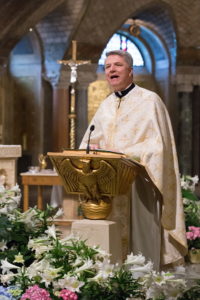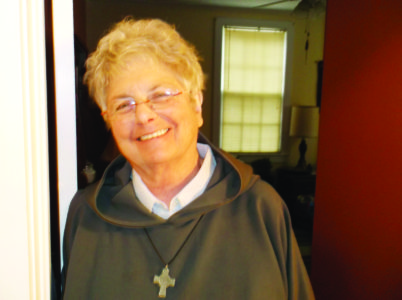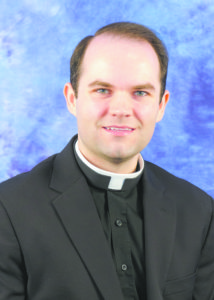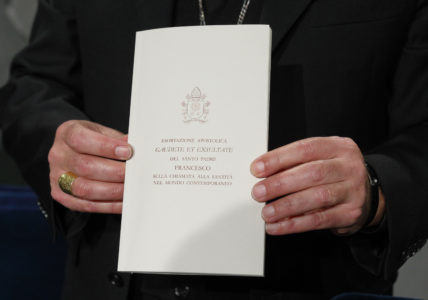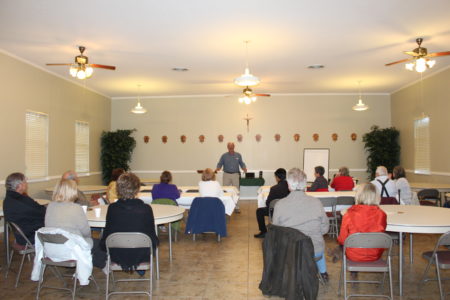By Maureen Smith
JACKSON – Hundreds of children in Mississippi need foster homes so Catholic Charities is putting out a call for willing families right now. Charities can train, certify and support families who take on this very special challenge.
Kelly and Kendall Spell wanted to adopt and started their process by becoming foster parents while Aiysha Johnson-Burks and her husband Justin Burks are supporting a nine-year-old foster child as she works toward family reunification. Both families foster through Catholic Charities.
The Spells talked about adoption back when they were high school sweethearts. They were working on a private adoption when they lost touch with the mother. When the baby was born, they got a call, but not from whom they expected.
“The mother tested positive for drugs and so did the baby when she was born, so of course CPS (Child Protective Services) was called. In order to bring the baby home we had to become licensed foster parents,” explained Kelly. Amy Turner, director of children’s services for Catholic Charities, took on their case, working to get their home certified and complete their training quickly.
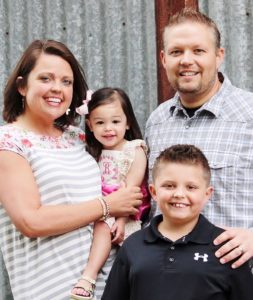
JACKSON – The Spell family, (l-r) Kelly, Brooks, Kendall and Paxton. The family fostered their daughter before they adopted. (Photo courtesy of Spell family)
When Johnson-Burks married she and her husband knew they wanted to be foster parents, but she already worked for the Department of Human Services and could not take in a child from the county where she worked. Additionally, Justin’s late-night shifts at a local television station prevented them from going to the classes they needed to be certified. As a family protection worker, Johnson-Burks often had to take kids into custody from situations of abuse or neglect. She learned first-hand how overwhelming the need for foster families is in the state.

Aiysha Johnson-Burks, her husband Justin Burks became foster parents after their son, Roman, was born.
“I knew we had more than 500 kids in custody in Hinds County. In my very first case, I took two kids into custody, but did not get home until 3 a.m. because we had no home to place them in. That same week, I took two more kids into custody and had to drive them to Hattiesburg (to a group home) because we had no foster homes,” she said. She learned about Catholic Charities as she referred clients to programs such as the Solomon Counseling Center and Born Free/New Beginnings that helps mothers with addiction stay off drugs during and after pregnancy. A few years later, Johnson-Burks changed jobs and her husband changed shifts. They had a son of their own, but still wanted to foster so they started training.
“The whole process took about two-and-a-half months. We got licensed one day and got her (their foster child) the next,” she said. The family consciously chose to go through Catholic Charities. “For the support. We could have gone through DHS, I knew everyone there, but I wanted the support, especially for the child. Most of the children in custody in Hinds county are on psychotropic medicines. With Catholic Charities, she has a therapist, so we have a therapist. The foster team is awesome. They are so present and so patient. We have had to call the hotline,” she said.
Kelly Spell said the family had some rough days and nights when the baby first came home so they, too, relied on the extra support Charities offers. “We had been praying for her for so long because we knew about her so I guess its just what we felt like we needed to do,” she said. All foster families attend a monthly support and education group.
She tells families considering foster care or adoption they might be surprised. “We can do a lot more than we think. If anybody had asked us prior to this, I would have said no, I would have said there is no way that he and I could do it.” They are glad they worked with Catholic Charities. “This is more like a family. I can call them when I have something I want to talk about without having to make an appointment,” said Kendall Spell.
His wife said faith and support have been key throughout this process. “It’s God. God puts the child in your home and he helps you get through all the hurdles and crazy times.”
The Spells have a son, Paxton, who loves to play with his sister and he knows she’s special “because she got adopted.”
Johnson-Burks said she tries to make sure her foster child gets lots of opportunities to play and interact with extended family. “She was in an adult role in her home and doing adult things, so we want to let her know that she is a kid and she can be a kid.” She also wants to support her child’s desire to reunite with her biological family.
“She has an aunt who wants to go through the foster training process so she plans to reunite with her family,” said Johnson-Burks. “We explain to her that her mom has a problem she needs help with. One thing my husband and I understand is that we are fostering. We are keeping and caring for someone else’s child,” she said.
She and her husband see foster care as a way to be present not just to a child in need, but to a whole family. “Becoming a foster parent, I didn’t think about the what-ifs, I know what God’s gifts to me are and I run with that. I tell people to always have an open mind, you never know how you will be blessed. You will come to a crossroads in your life when you need help – financially, spiritually, physically. This is a family that needs help, so I can provide that,” she said.
“I think just knowing that you can provide what a child needs for a week or a month, that may be more than they may have had their whole life, so (do) anything you can do to show them that they are loved. Tell them that God loves them – even if it’s just for a week, we have no way of knowing what impact that will have on that child,” said Kelly Spell.
Turner said her office is ready to start training any family who has the calling and meets the standards. Therapeutic foster parents complete extra training and have extra supervision, all coordinated by Catholic Charities. To inquire, call Shamir Lee at 601-624-5288.
Those who wish to support the program overall can run or donate to Run, Foster Run. See page 6 for details.

